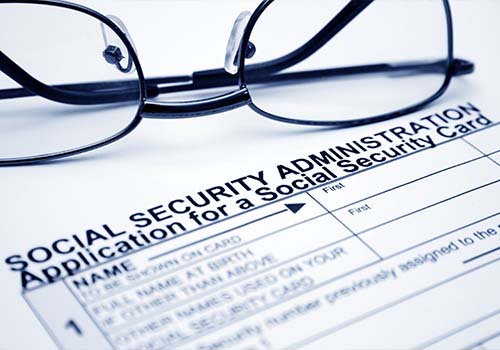Unemployment insurance provides a great benefit to people who lose their jobs. They can collect unemployment payments until they can find a new job. However, many people wonder if they can still receive unemployment benefits if they quit their jobs.
Most of the time, you can only qualify for these payments if you are laid off or lose your job through no fault. If you quit your job, you generally won’t be eligible for unemployment except in a few particular situations. Here is what you need to know about quitting your job and receiving unemployment.
Do You Get Unemployment If You Voluntarily Quit Your Job?
Qualified Reason for Quiting
If you voluntarily quit your job without good cause, you will not be eligible for unemployment benefits in any state in America. Just because you might think that you have a good reason does not mean that reason will qualify you for benefits. There are many good reasons that people might quit their jobs, but many of those reasons do not qualify as “good cause” when determining unemployment eligibility.
For instance, you might decide to pursue a different career path. Perhaps you no longer find your work exciting and want other options. Similarly, you may feel stuck in your job with no room for advancement or promotions. While this is a valid reason for quitting your job and moving on, those reasons alone will not allow you to collect unemployment while looking for a new job.
States Differences
Each state views the reasonable cause eligibility requirements a little differently. One state may determine that your reason is valid, while another might deny your claim. It depends on where you live, although most of the personal reasons described above will never allow you to qualify for benefits. Keep reading as we tell more details of some of the good cause reasons for quitting as well as discuss how to get unemployment or appeal a decision by your state’s Department of Labor.
KEY TAKEAWAYS
- Generally, you won’t be eligible for unemployment benefits if you quit your job. Unemployment is intended for those who are let go (without cause).
- To qualify for unemployment, you must have enough work history, be willing to return to work and be actively searching for a job.
- There are a few reasons when quitting may still qualify for unemployment, such as non-payment, discrimination, harassment, and unsafe working conditions.
How Unemployment Benefits Work
The basics of unemployment benefits are pretty simple. These benefits are intended to help provide financial assistance if you are laid off. In some cases, you can still receive benefits if you are fired or quit, but those instances are rare. You must meet specific requirements to be approved for benefits.
Eligibility Requirements
First, you must have enough work history to be eligible. This varies by state, but generally, even part-time workers can qualify for benefits if they have worked at their jobs for a decent period.
Next, you must be willing to work and actively search for a job. Some states require that you complete a specific number of employment applications each week while receiving benefits.
Application and Length of Benefits
Once you lose your job, you submit your benefits application to your state unemployment office. If approved for benefits, then you will begin receiving payments. You should also know that there is a limit to the length of time you can receive benefits. That length of unemployment can vary by state as do the amount of benefit payments. Many people also wonder if they must file taxes when collecting unemployment. While you might still need to file taxes, most states and the IRS exempt a certain amount of unemployment payments from income taxes.
So, how long can you receive unemployment benefits? It depends on the state in which you live. In most states, you can receive about 10 to 26 weeks of benefits if you are reasonably trying to find a new job.
Must read articles related to Personal Finance
- Eight ways to maximize your Social Security benefits.
- Learn about the differences between a living trust and a will.
- What are the benefits of title insurance?
- How to identify & avoid Social Security Scams?
- Making sense of debt-to-asset ratios.
Unemployment Eligibility When You Quit Your Job
For most full-time and part-time workers, quitting your job will not qualify you for unemployment benefits. These benefits are usually intended to cover layoffs and unexpected job losses.
Most of the time, a reasonable person will not quit their job unless they have another lined up. However, there are instances where quitting may be the only option. In certain circumstances, quitting your job may be warranted, allowing you to qualify for benefits.
Valid Reasons for Quitting
These circumstances usually occur when there is good reason to quit your job. This may be due to unsafe working conditions, harassment, or some other issue that leaves the worker no choice but to quit working. In those cases, the claimant can usually get approved to receive benefits.
“Good Cause” Reasons For Quitting
We have mentioned some instances where you can quit your job and still receive unemployment compensation. It depends specifically on your state’s law, but the following situations generally constitute good cause for quitting your job.
Non-payment
If your employer no longer pays you for time worked, this could amount to constructive discharge. The reasons for non-payment are typically not as important. Perhaps the company is in financial trouble, or the employer has gotten lazy regarding payroll. Either way, quitting your job to look for other work, in this case, will likely not disqualify you from receiving unemployment.
Unsafe Working Conditions
All employees need suitable work conditions; failure to provide safe conditions can be reason enough to quit your job. Not only could you get injured, but that could lead to additional financial difficulty. If your employer refuses to correct these unsafe conditions, then you are likely OK to go ahead and quit your job and start another job search. If you have any questions, you should seek legal advice before quitting.
Discrimination
Quitting your job because you’ve been discriminated against is usually a valid reason for unemployment. The most common discrimination issues are based on race, gender, and medical conditions, but other things can constitute discrimination. This can also escalate to the level of constructive discharge, technically a form of wrongful termination and not a voluntary quitting.
Harassment
Genuine harassment will usually be enough grounds to quit your job. This could be sexual harassment or harassment of other types. If you are subject to constant harassment, then you should go ahead and get legal help as well. Even without legal assistance, you can quit your job and probably qualify for unemployment benefits.
Family Emergency
This is somewhat of a catch-all reason. This might be due to domestic violence or to provide child care or care for a sick family member. The laws vary by state regarding the seriousness of the medical condition, but you can always contact your state unemployment insurance agency with specific questions.
TIP
If you are initially denied unemployment benefits, you can appeal the decision. This usually involves a hearing with a state-appointed judge/mediator who hears your appeal. Witnesses and additional evidence are typically required to overturn the decision.
Appealing An Unemployment Decision
If you have been denied benefits, you can always appeal that decision. You will need to provide your Social Security number and other contact information to appeal the decision made by the state unemployment agency.
The first step is to contact your state’s agency for the specific process but be prepared to gather plenty of documentation to support your claim. You may need to find witnesses and present evidence to show why your claim was wrongfully denied.
The Bottom Line
By now, you should know the answer to the question, “Can I get unemployment if I quit?” Voluntarily quitting your job is usually enough to prevent you from receiving weekly benefits from the unemployment office.
However, some things justify quitting and still allow you to get unemployment. These are usually reasons for “good cause” and not something like quitting because you do not enjoy working there anymore.
Some examples include harassment and unsafe working conditions. If you are denied benefits, you can appeal that decision, though you must have your evidence ready.
Frequently Asked Questions
Usually, stress is not enough to allow you to leave your job and still qualify for unemployment benefits. However, if stress is a severe medical condition, it might be a valid reason in some states. Since the laws vary by state, you should seek legal advice from an attorney in your area or contact your local unemployment office.
Quitting is where you voluntarily leave your job and decide not to work there anymore. When you get fired, your employer terminates your employment and tells you you are no longer an employee. So, maybe you’re wondering, “Can I get unemployment if I get fired?” Quitting and getting fired for cause usually nullifies your ability to collect unemployment.
If you take another job after leaving one, then there is usually no need for unemployment. Unemployment benefits are meant to provide help while you are searching for a new job.
The disclaimer here is that you can draw benefits if your next job doesn’t pan out. For instance, if you left your job after receiving a firm offer from another employer, then the second employer disappears, you might be able to draw unemployment while you conduct a new job search.
Many people wonder, “Can you collect unemployment if you quit?” If you quit your job, it must be for good cause to qualify for unemployment. If you voluntarily leave for other reasons, then you will not be able to receive unemployment benefits.
This is why it is important to know the laws in your state before leaving your job. You might find yourself between jobs with no income and have a hard time making ends meet.
You can find a Social Security Administration office near you by using our SSA office locator and searching for your closest location.





